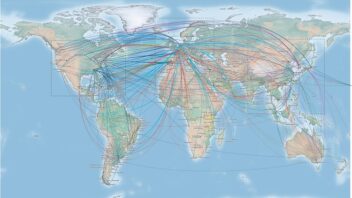Dutch Prize Papers now online
Huygens ING put online approx. 140,000 scanned pages and objects from the world-famous Prize Papers collection. Never before were so many digitised documents from this unique and extensive collection made available at the same time.
On Friday 21 June, the Huygens Institute for the History of the Netherlands released approx. 140,000 scanned pages and objects from the world-famous Prize Papers collection by making them publicly available online in a digital environment. The documents can be found at prizepapers.huygens.knaw.nl. Visitors are invited to observe every document in detail here. This collection enables searches by name (captain, ship) and date (of hijacking).
In the seventeenth and eighteenth centuries, British hijackers captured many enemy ships. The documents they found on those ships have been resting in the National Archives of London for some three hundred years. Roughly a quarter of these Prize Papers originate from Dutch ships. The collection includes not only logs, manifests, bills, lists of plantations, and reports of interrogations of crew members, but also several thousands of business and private letters. The letters, which originate from all layers of society, allow an unprecedented inside look of the daily lives of ordinary people. Besides paper heritage, the collection includes various textile samples and even some jewellery.
This unique collection provides a perfect basis for research into, for instance, developments in the fields of linguistics and dialects, trade, material culture, and social relationships. The captured documents and objects present a picture not only of the Dutch shipping industry and trade in the seventeenth and eighteenth centuries, but also of the lives of crew members and their home front families.
Some of the letters from the Prize Papers collection served as a basis for the Dutch TV programme Brieven boven water (‘Resurfaced letters’), which was presented by Derk Bolt between 2011 and 2013 and televised by the Dutch broadcasting organisation KRO.
A substantial grant from Metamorfoze – the national subsidy scheme for the preservation of paper heritage – and the Joint Maritime Funds (‘Samenwerkende Matitieme Fondsen’) has enabled Huygens ING to share this collection.




